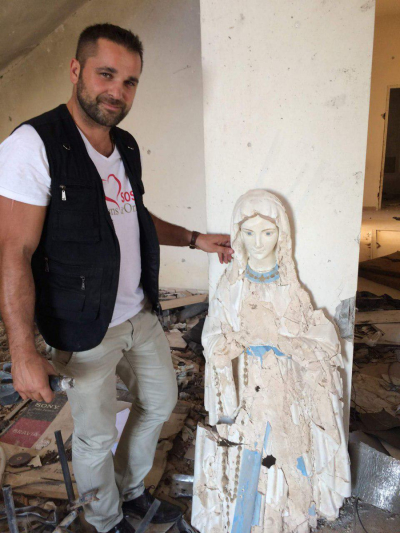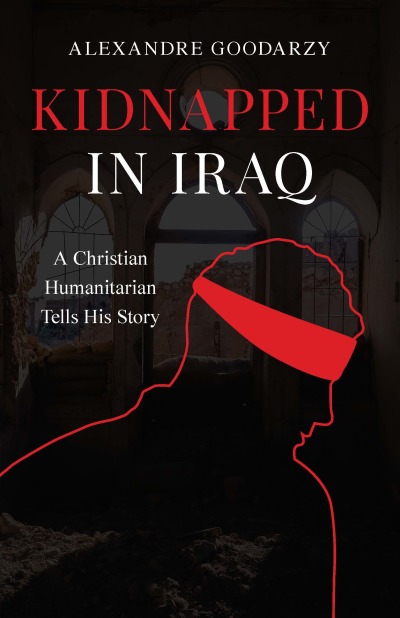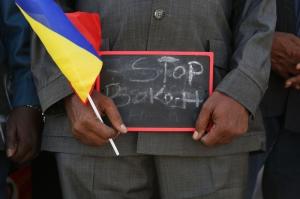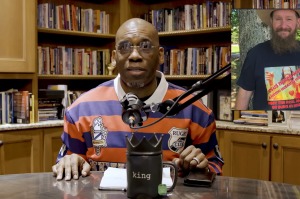'Kidnapped in Iraq': Christian aid worker recounts his 66-day abduction by Islamic militants

A French former Catholic school teacher has opened up about the torturous conditions he faced while being held hostage by Islamic militants for two months while serving a Christian humanitarian effort in Syria, something he felt God had called him to do.
In 2014, Alexandre Goodarzy became alarmed at reports of Christian oppression in the Middle East and responded by joining the relief group SOS Christians of the Middle East in Syria. He traveled to the country in 2015 to assist persecuted Christians in the region ranked as one of the worst when it comes to tolerance of Christianity.
As a history and geography teacher, Goodarzy told The Christian Post he first heard of SOS Christians — known in French as SOS Chrétiens d'Orient — from one of his students.
"For a long time, I raged to remain spectators of all this human madness, to have to watch from afar this region that I loved so much, to end up remaining powerless," Goodarzy wrote via email. "[SOS] was for me a call from the Lord, a call to serve Him by coming to relieve His children, my brothers."
After hearing reports of the dwindling Christian population in Syria — which has gone from roughly 2 million to about 700,000 since the start of the civil war a decade ago — Goodarzy felt compelled to help.
"We do not prevent or judge those who want to leave the country, but we help those who want to stay," he said.
SOS Christians has provided several million euros' worth of medical equipment, food, warm clothes and hygienic products to Syrians. The charity also helped reconstruct churches, houses, schools and hospitals.

The organization also financed summer camps for "thousands of young Aleppins who knew nothing but war for several summers," said Goodarzy.
In his new book, Kidnapped in Iraq: A Christian Humanitarian Tells His Story, Goodarzy recounts his relief trips to Syria, his travel to Aleppo, the second-largest city in Syria and one of the oldest inhabited cities in history. He also detailed what he went through during the 66 days he was held hostage by jihadi terrorists, recounting torture and threats against his life.
A strong 'jihadist presence'
According to Goodarzy, a strong "jihadist presence" of Al Nusra — the branch of Al-Qaeda in Syria — and the Islamic State marks the road to Aleppo for hundreds of kilometers. It takes several hours to travel there by car or bus.
The journey, Goodarzy said, was never an easy one.
"I had scares. The carcasses of cars, buses, tanks that punctuate the road, the reaction of passengers who panic as soon as there is a roadblock. It is not uncommon for Islamists to disguise themselves as soldiers of the Syrian army to stop, shoot and decapitate passers-by," he said.
"All this I knew, and I was sometimes afraid. But I knew God was there."
Despite the risks to his own life, Goodarzy believed he was doing the Lord's work.
"Once [we arrived] in Aleppo, you meet all these forgotten, almost neglected people. ... You tell yourself that it's worth it," he said. "We have sometimes to take risks for God. The rest is in His hands."
After traveling back and forth on the perilous 12-hour bus ride from Damascus to Aleppo regularly for 18 months, Goodarzy was abducted along with three other charity employees and held captive by Iraqi terrorists during a trip to Baghdad in January 2020.
'Your lives will end here'
Sometimes not eating for more than 24 hours — often sharing two cans of tuna for four people — Goodarzy said the Shiite militia that abducted them would play Quranic chanting on a loop day and night for a week.
He said the militants kept the captives on a cold floor. At times, he and the others covered themselves in blankets with a stench that was often more difficult to bear than the floor itself.
Their eyes were covered with blindfolds or goggles that were spray-painted black inside and out to prevent them from seeing.
Goodarzy says the captors subjected them to psychological torture, alternately taunted them and chatted with them about French soccer stars. They were told to "forget" about seeing their families ever again.
"Your lives will end here," Goodarzy recounts hearing one of his captors say.
Even in the bleakest of circumstances, prayer helped sustain Goodarzy from one day to the next.
"Sometimes we caught each other praying, almost as if we were embarrassed," he wrote. "It wasn't so much embarrassment at the prayer as it was embarrassment at the acknowledgment of weakness and fear. We didn't want to let each other know how close we were to breaking down."
It was only when the onset of the global coronavirus pandemic occurred in March 2020 that Goodarzy and his fellow captives were freed. He eventually rejoined his wife and son in France.
A word of warning
Goodarzy hopes Kidnapped in Iraq will serve as a warning to other nations about the threat of radical Islam.
"The [Christian] Lebanese, Syrians and Iraqis often tell us: 'What we have always experienced with Islam will happen to you! You are not careful enough! What strikes us today will happen to you tomorrow!'"
"Many of the murderers who went to jihad in Syria and Iraq come from Europe," the author added. "It is obvious that with their warlike and murderous experience in the Middle East, they represent a danger for European countries where they risk importing this violence for the same purposes at one time or another."
More than simply wanting to share his horrific experience, Godarzy says he wants the world to know about the warnings he received from Syrians during his time there.
"In private, when they open up to you, it is not uncommon to hear remarks like: ...' Through arms and institutions, the Muslim Brotherhood is gaining ground, nibbling away at social, cultural and political space. What we put off today will reappear in 20 years. We have been living with this problem for 1400 years,'" he said.
"'But you in Europe, you don't know them. You've only lived with them for 50 years.'"



























